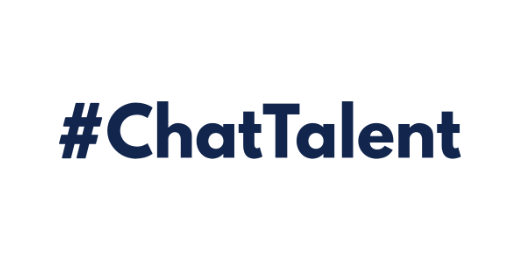When it comes to performance management, your people need acknowledgement and direction. That’s why feedback and recognition go hand in hand in the world of effective leadership. Starting with feedback, whether positive or constructive criticism, everyone needs it to better understand how they are progressing and how to continue doing so in the best way and at the best rate possible.
With recognition, people need to feel seen and valued for their contribution. Not only does it pave the way for good relations, but it shows your team you respect what they do. That doesn’t mean, however, that everyone wants recognition for their work. Sure, we’ve all come across those who are willing to take credit that’s not theirs to take. But some of us also know the humble member of the team who shies away from praise. However, everyone deserves to be recognised for their work, and it’s your job as a people leader, alongside feedback, to ensure they get it.
Why Is This Important Now?
The day of the end of year review where you throw a couple of positive now severely outdated words at a member of your team for something they did the previous spring, is rightly on it’s way out. The same goes for the heads up on something someone could have done better in a project that was completed months ago. By that stage, the memory of the project has passed, and engagement with it faded.
“The real world of your people needs to be met in their workplace.”
Thankfully, this is instead being replaced with feedback in real-time. This is the case for many reasons. One major one being, it is a response to the trends of how your people live their lives today. Before many of your employees start work in the morning, they have likely checked their social media accounts. For what? Some instant gratification from their peers. That desire doesn’t shut off when they clock in. The real world of your people needs to be met in their workplace.
One way of achieving this is through regular recognition. The other is feedback because they want that too. A social media like is great, but what about the comment? Sure, it’s not always positive with feedback, but that’s the world people are living in, working in and can relate. This applies across the board. Feedback can be a chance to improve which the majority of people want to do, and they want to hear from those who are in leadership roles of how they can do better.
What Are The Benefits?
-
Feedback and recognition help everyone stay on track.
Focusing your people and keeping them working towards the right goals needs to happen. These practices allow for course correction and support alignment.
-
They encourage people to develop their skills.
They provide your team with opportunities to improve which are in line with management support. This is powerful as it helps everyone grow and evolve as the company does too.
-
They ensure you are in tune with your people.
This one is crucial. If you regularly recognise people for their efforts as well as linking in with them feedback-wise, you know what people are doing. As well as this, you are learning what motivates and inspires them. This is something every leader needs to know about their team members.
-
They build trust.
This is a foundational factor in smooth operations and can develop through these processes. It’s also built both ways. With feedback and recognition, you show you are interested in your people’s growth. This along with trust also helps you to move to a coaching style of management.
-
They get your people on board.
Getting buy-in from your people can be a challenge as a manager. Feeding back to your team on their efforts as well as recognising them means your people will feel valued and are much more likely to support new projects and processes. Even if you think about it for yourself, you are less likely to roll up your sleeves and give your best work to someone who doesn’t show any appreciation for it or support you in achieving it. You are far more inclined to do so for someone who does.
-
They increase engagement.
This makes sense. Why wouldn’t you be more encouraged to get involved in your work if this process becomes more frequent? Research from Gallup explores how regular feedback can improve engagement. Conversations about career progression and coaching to address any challenges earlier on all work towards this.
-
They improve productivity.
Similar to the above point, if you are in a work environment that is positive, motivating, recognises wins and sets you up to achieve them, you are on the way to being more productive.
-
They support you in supporting them.
Regular feedback and recognition mean regular checking-in. You will know what people are doing and working towards, as well as what they are accomplishing. More than this, you’ll soon notice any gaps in development or if someone might need help so you can intervene.
-
They create a great company culture.
This routine of appreciation, encouragement, transparency, accountability and support, only stands to connect your people, deepen relationships, develop a sense of belonging and community. This might seem like less of a solid metic but is something every company needs for the long term sustainment of achieving those aims and objectives.
-
They bring consistency and continuity.
These are elements that every company and its culture need to thrive. And feedback and recognition are ways of achieving them.
How Do I Implement Them?
Implement A Feedback Framework
When it comes to regular feedback, you need to implement a forum or framework to make sure it happens. As a manager, you must make and get some time with each of your people. 1:1s need to happen too, that focus on individual professional aspirations. For more on feedback specifically, you can read our guide.
Start Recognising
This sounds obvious, but it’s the only way to make it an integral part of your company culture. From basic gratitude for kind gestures to going the extra mile on a big work project, start acknowledging it. All the thank yous, well dones, great efforts and appreciations build up over time to embed that positive reinforcement every business culture needs. You can do this during the 1:1s, but it’s also essential to do it in a group. Acknowledging people for their terrific work amongst their peers has a positive effect on them and their team.
Acknowledge In Real-Time
We always say don’t wait for the end of the year review before commending someone for an earlier quarter achievement. And we mean it. Acknowledge the accomplishment as it happens. This way, you aren’t only capturing their success, you are harnessing the positivity, inspiration and motivation that goes with it and directing it back into the company. Celebrating success in real-time means everyone can enjoy the benefits.
Be Consistent
This is vital. What you do for one person you need to do for another. You must be equal in your approach to feedback and recognition. If some people are acknowledged over others, it can cause conflict and leave some team members feeling undervalued. Avoid this where possible, and if you find yourself in a situation where you overlook someone or miss scheduling a meeting, backtrack. Admit your error and reschedule or recognise their input. Late is better than none. Being consistent here is also the only way you’ll embed the practices into your company culture.
With this in mind, don’t forget, they are a practice. You won’t get it all right overnight. But these are something worth weaving into your work environment, whether digital or otherwise. These are simple methods which have a massive return in terms of your people and their productivity. In the words of founder and author Ari Weinzweig, “If you don’t create a great, rewarding place for people to work, they won’t do great work.” And the place you can start with creating this kind of environment is with feedback and recognition.
It’s time to leave the paper-based ways of the past behind and make the move to a digital process that supports you in achieving your goal
THURSDAY, 15th OCTOBER @ 12.30pm







